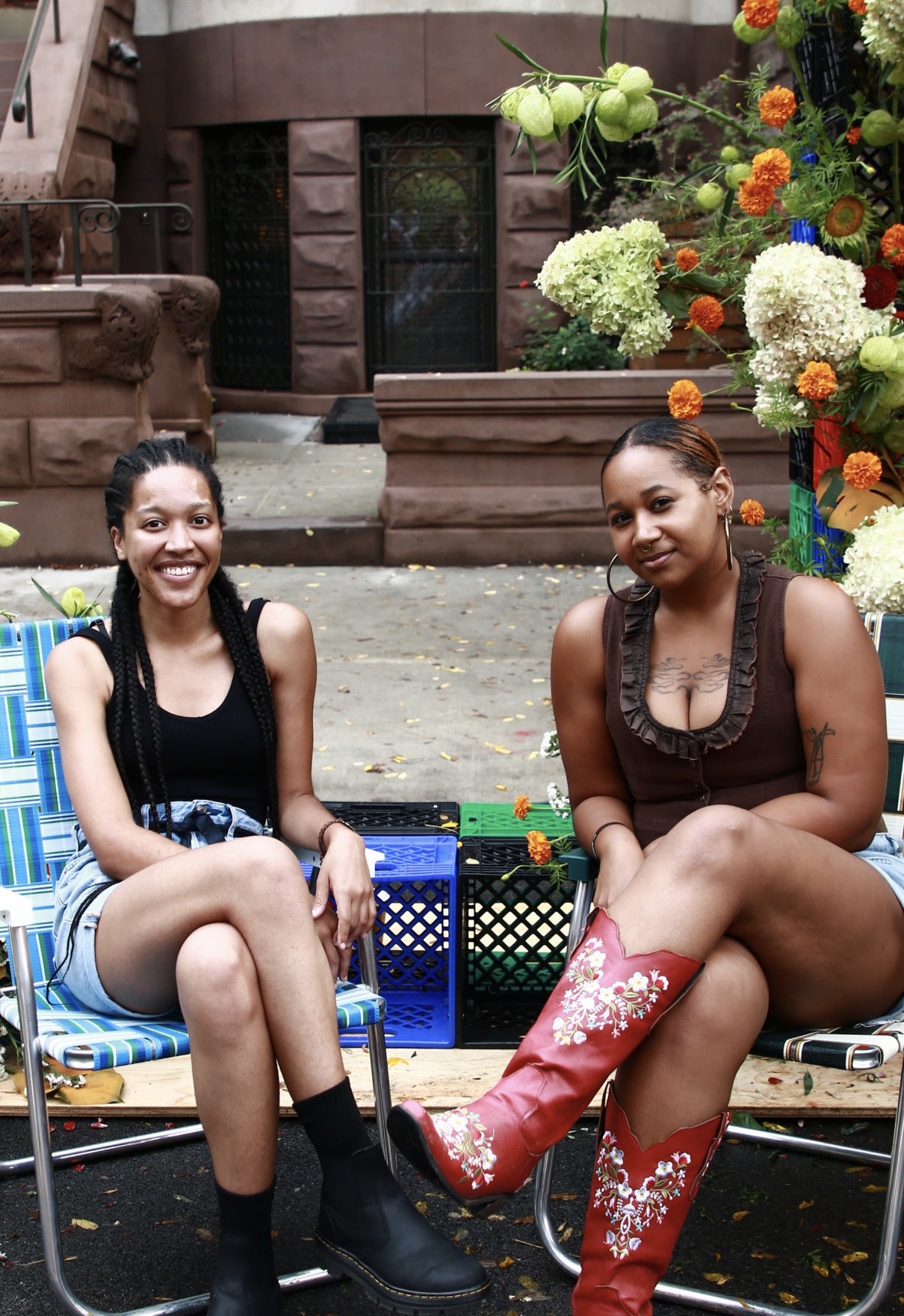theatre-making duo
DEDICATED TO MAKING blk spaces IN AN
anti-blk society.
DEDICATED TO MAKING blk spaces IN AN
anti-blk society.
We are Talia Paulette Oliveras and Nia Farrell, together Ta-Nia. We are a theatre-making duo committed to challenging the limits of theatre to create unapologetically BLK spaces of liberation.
We studied experimental and collaborative theatre-making at NYU’s Tisch School of the Arts where we both received a BFA in Drama. During our studies, we participated in the MLK Scholars program and graduated with honors. We have since collaborated and/or presented work in New York at Mercury Store, Playwrights Realm, Soho Rep (Writer/Director Lab; A Map to Nowhere things are), Ars Nova (ANT Fest; Dreams in Blk Major), and internationally at Berliner Festspiele Theatertreffen Stückemarkt, Schauspiel Dortmund (Eternity, The End, and Everything that Never Began), and Hessisches Landestheater Marburg (Tactics for the Future).
We are both multi-hyphenate artists who apply our interdisciplinary nature to the art we create in both process and product.
Learn more:
The Royal Court Theatre’s Playwright's Podcast x Stückemarkt Artists. Listen to Simon Stephen’s convo with Ta-Nia
Closing the Gap between Dreams and Reality: On the Work of Ta-Nia
On being BLK in an anti-BLK world
& other interviews.
![]()
We studied experimental and collaborative theatre-making at NYU’s Tisch School of the Arts where we both received a BFA in Drama. During our studies, we participated in the MLK Scholars program and graduated with honors. We have since collaborated and/or presented work in New York at Mercury Store, Playwrights Realm, Soho Rep (Writer/Director Lab; A Map to Nowhere things are), Ars Nova (ANT Fest; Dreams in Blk Major), and internationally at Berliner Festspiele Theatertreffen Stückemarkt, Schauspiel Dortmund (Eternity, The End, and Everything that Never Began), and Hessisches Landestheater Marburg (Tactics for the Future).
We are both multi-hyphenate artists who apply our interdisciplinary nature to the art we create in both process and product.
Learn more:
The Royal Court Theatre’s Playwright's Podcast x Stückemarkt Artists. Listen to Simon Stephen’s convo with Ta-Nia
Closing the Gap between Dreams and Reality: On the Work of Ta-Nia
On being BLK in an anti-BLK world
& other interviews.

© Berliner Festspiele / Juliette Hüsler

Ta-Nia is always interested in collaborating with new creatives and exploring where our work can exist.
Some previous collaborations:
Mundane Afrofuturism Teach-In Collaboration between Radical Hood Library (Los Angeles) and Ta-Nia to host a teach-in on the concept of mundane afrofuturism, as expanded for our artistic practice
Black Futures Collaboration between Black Futures and Ta-Nia for Youtube’s Digital Theatre Iniative in London, UK
Ritual of Repair Collaboration between ChelseaDee Harrison and Ta-Nia to create a Digital Sanctuary
Contact us here for any inquiries, potential collaborations, etc.
Curious about Talia & Nia separately? While we truly consider ourselves a single entity, you can learn more about Talia here and Nia here.
donations are always appreciated
they can be sent to:
they can be sent to:
we intentionally pay donations forward to:
1. mutual aid funds and grassroot collectives
(some favorites are BTFA collective, For the Gworls, Bushwick Ayuda Mutua, and NourishNYC)
2. paying our collaborators larger fees
as we intentionally work with BIPOC and queer artists, it’s important that we recognize the way systemic capitalism affects our communities and strive towards equity by paying collaborators as much as we can and always being people-first
3. providing free offerings to community
(examples include providing take-home snacks, seeds to be planted, and more alongside our projects)